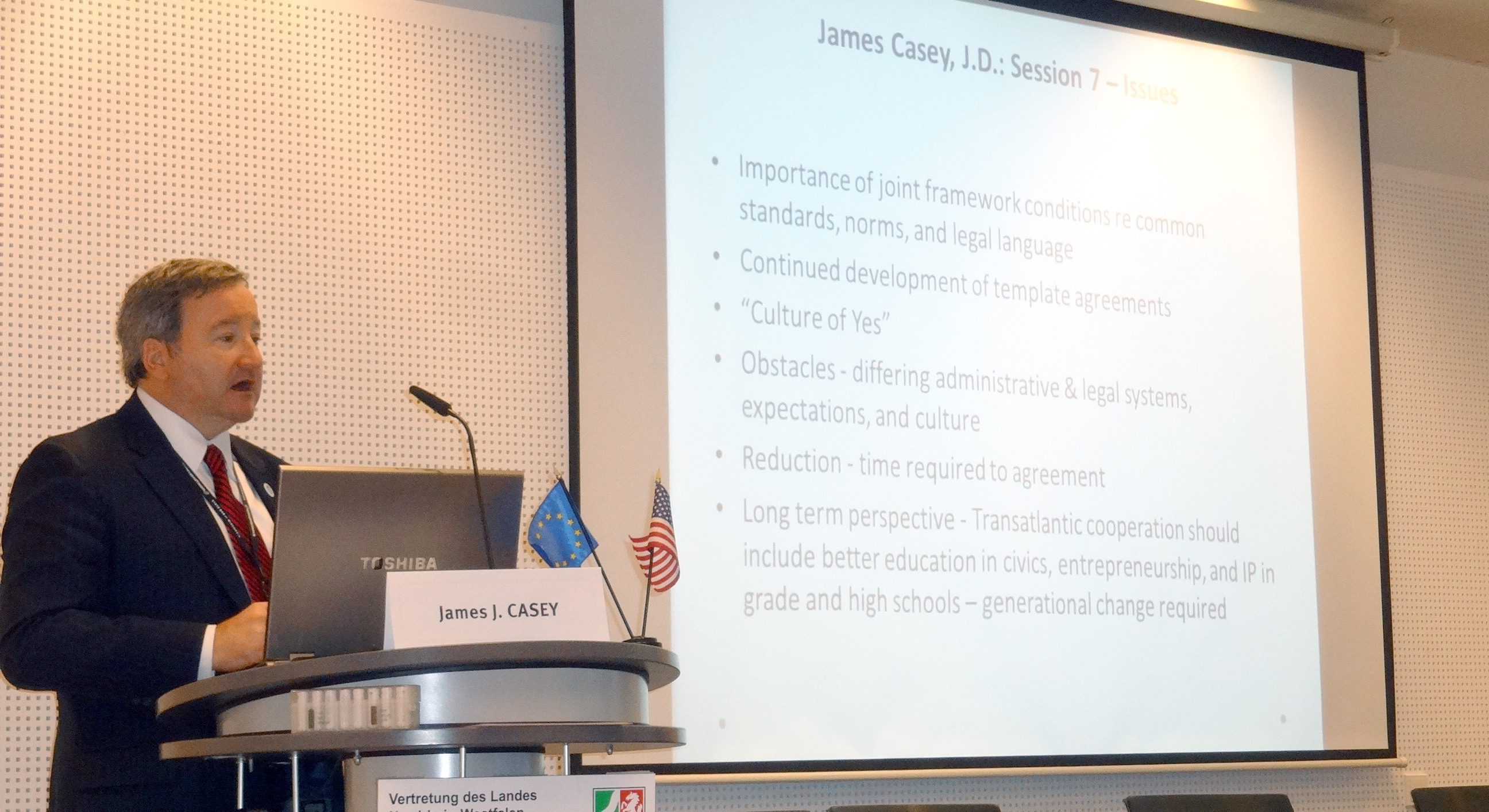It is widely acknowledged that the relationship between the European Union and the United States is a special one. This relationship is born out of common political, social, cultural, and historical facts and dimensions. A very specific aspect of this special relationship – one not as widely known – is science and technology (S&T) collaboration between the EU and U.S.
The European Commission convened the BILAT USA 2.0 EU-U.S. Innovation Conference in January 2015, held in Brussels, Belgium, to see how innovation can be more effectively infused into the European-American S&T relationship.
 James Casey, Dayton 1988, is Director, Office of Sponsored Programs, at American University in Washington, D.C. In this role he manages and directs the development and management of sponsored research (grant) projects by AU faculty and staff.
James Casey, Dayton 1988, is Director, Office of Sponsored Programs, at American University in Washington, D.C. In this role he manages and directs the development and management of sponsored research (grant) projects by AU faculty and staff.
I had the honor and pleasure to speak at the conference as a university representative with extensive international experience. I presented the issues as I saw them, and outlined best practices that may help infuse a stronger innovation component into the overall S&T relationship.
As my article, “Issues and Enhancements to Inform Transatlantic S&T Cooperation between the European Union and the United States,” in the March 2015 issue of Back Home – newsletter of the State Bar of Wisconsin Nonresident Lawyers Division – outlined in more detail, there are a number of critical issues that are important for short and long term enhancement of the EU-U.S. S&T relationship. Depending on your definition, these issues are either more transactional/technical or nontechnical in nature. Of the nontechnical issues, especially in light of the vote in the United Kingdom to exit the European Union in the coming years (BREXIT), the role of culture in expanding collaboration in the S&T realm is now of even greater importance. Culture was always an important issue, but it assumes greater importance given the BREXIT vote.
Another point I made during my presentation – that flexibility in negotiating timely and mutually satisfying agreements – is even more important given the uncertainties occasioned by the BREXIT vote. European and American negotiators need to be more flexible in coming to agreement – whether at the EU-U.S. government level, or at a more discrete "in the weeds" level.

James Casey speaks at the BILAT USA 2.0 EU-U.S. Innovation Conference in Brussels, Belgium, in January 2015.
My presentation spoke of both short and long-term enhancements to S&T collaboration and how innovation may be more effectively infused therein. Given the recent positive vote for BREXIT, it can be strongly argued that at this uncertain point in time that a short-term focus may be the most advisable. In my presentation I spoke of the short-term as being up to 10 years in time, but obviously that metric has changed with the BREXIT vote. Given a potential timetable for BREXIT implementation, the short-term should be read to mean one to five years, and the long-term greater than five years.
While the S&T relationship between the EU and U.S. was a fascinating area before the BREXIT vote, it becomes even more interesting now. Clearly, the EU is entering unique waters, and those of us on the western side of the Atlantic are going to be part of that ride.
For more information on my Brussels presentation, the reader is encouraged to read my Back Home article in its entirety. If you have any additional questions, please feel free to reach out to me.
